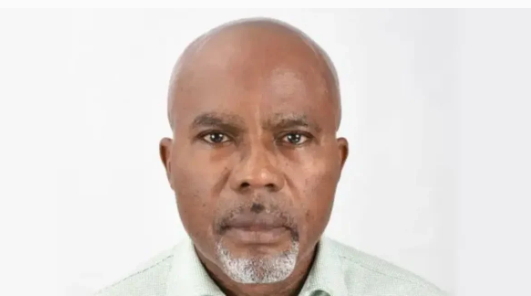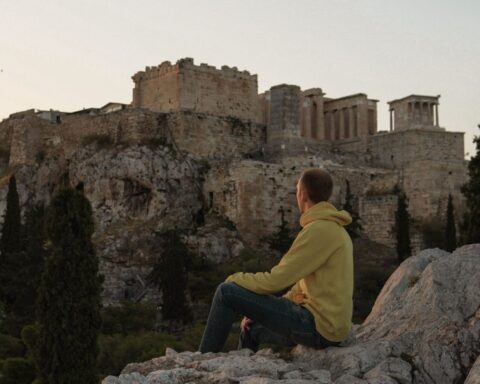By Ugo Onuoha
Donald Trump’s warning to President Tinubu over alleged genocide against Christians has reopened Nigeria’s deepest wounds — exposing again the country’s uneasy balance between faith, power, and politics.
A Red Herring in the Nigerian Tragedy
Red herring. That is the one phrase that best captures the flurry of debates following former U.S. President Donald Trump’s threat to “deal with” those he accused of waging a genocidal war on Christians in Nigeria.
Trump’s statement was stark: President Bola Ahmed Tinubu must act decisively against sectarian Islamist terrorists seeking to Islamise the country — or face dire consequences. His warning, dramatic as it sounded, reignited a familiar national anxiety.
The Nigerian government, characteristically, has swung between denial and reluctant acknowledgment. Officials first dismissed talk of genocide as exaggerated propaganda; then, in the next breath, admitted that while killings exist, they are not state-sanctioned.
The Denial Industry
Some Muslim groups and clerics have been especially vocal in rejecting the label of “genocide,” particularly regarding violence in the Middle Belt. But their rebuttals struggle against visible reality.
“We live in a global village; the world sees everything,” the author notes.
In the age of smartphones, satellites, and citizen journalism, atrocities cannot easily be buried. The world watches Nigeria — just as Nigerians watch the world. Even North Korea, despite its iron censorship, has not fully silenced global scrutiny.
Governments everywhere understand that information is power. Nations spy on allies and enemies alike. The 2010 WikiLeaks scandal merely confirmed what the powerful already knew: diplomacy is as much about gathering intelligence as exchanging pleasantries.
From Lagos cocktail receptions to cultural events like the Argungu Fishing Festival or Ojude Oba, Nigeria is never beyond the gaze of foreign observers. Agents arrive disguised as tourists. The truth always finds its way out.
So when it comes to the question of whether genocide against Nigerian Christians exists, the argument itself has become redundant. The evidence is in plain sight.
Before the Beginning: Seeds of Division
Nigeria’s religious fault line is not new — it was inscribed into the country’s DNA long before independence.
In 1957, Sir Ahmadu Bello, the Sardauna of Sokoto, famously declared:
“We the people of the North will continue our stated intention to conquer the South and dip the Qur’an in the Atlantic Ocean after the British leave our shores.”
Twelve days after independence in 1960, Bello told The Parrot newspaper:
“Nigeria should be an estate of our great grandfather Uthman Dan Fodio… We must use the minorities in the North as willing tools and the South as a conquered territory.”
Abubakar Tafawa Balewa, Nigeria’s first Prime Minister, echoed that sentiment as early as 1947:
“If the British quit Nigeria now, the Northern people will continue their uninterrupted conquest to the sea.”
More than sixty years later, not one major northern political figure has publicly renounced these views.
Christians in Power — or So It Seemed
Some argue that Christian presidents like Olusegun Obasanjo (1999–2007) and Goodluck Jonathan (2010–2015) disproved the claim of Islamic domination. But events during their administrations tell a different story.
Under Obasanjo, nearly all northern states (except parts of the Middle Belt) adopted Shari’a law, creating parallel legal systems and semi-autonomous religious jurisdictions. Under Jonathan, the backlash from northern elites was ferocious. His presidency was haunted by conspiracy and ultimately drowned by a wave of coordinated opposition — much of it driven by religious sentiment.
Now, some of those same northern actors are courting Jonathan again, hoping to exploit his credibility to patch the cracks left by Tinubu’s struggling Muslim–Muslim ticket.
Trump’s Threat and Nigeria’s Reality
Was Trump properly briefed before making his threat? Perhaps not. Yet his blunt accusation touches on an uncomfortable truth: Nigeria, for all intents and purposes, already behaves like an Islamic state.
The Constitution says otherwise, but the system tells a different story. Nigeria operates two codes of law — Criminal in the South and Penal in the North — reflecting deep-rooted ideological divides.
More revealing, however, is what the 1999 Constitution itself contains. Analysts like Pastor Femi Emmanuel and U.S.-based researcher Dr. Josephine O. Soboyejo have shown how heavily it leans toward Islam.
“Shari’a Law was never enacted into the Constitution — it was inserted,” Soboyejo asserts. “It appears 73 times. Islam, 28 times. Muslim, 10 times. Grand Khadi, 54 times. The Constitution contains no mention of Christ, Christianity, or Church.”
She calls this “a dual ideology” — one that gives lip service to secularism while institutionalising religious imbalance.
A Fragile Secular Dream
Nigeria’s so-called secular state is built on contradictions. Section 38 guarantees freedom of religion, but Section 6 embeds Shari’a jurisdiction, creating a legal paradox that has become “calamitous for Christians,” as Soboyejo puts it.
This reality is not academic. It plays out in blood and fear across the Middle Belt and Northern Nigeria.
In 2019, CNN honoured Imam Abubakar Abdullahi of Plateau State, who risked his life to shelter 262 Christians in his mosque during an attack by Muslim herdsmen. His bravery made global headlines — but his story underscored the perilous truth: those who defend Christians often do so at the edge of death.
From Gideon Akaluka to Deborah Yakubu, countless Nigerians have been lynched for alleged blasphemy. Their killers remain free, unpunished, and emboldened.
“It will finally be game over,” the writer warns, “when radical Islam fully captures the Yoruba nation — a process already underway.”
The stakes could not be higher. With the Yoruba population split almost evenly between Christians and Muslims, the struggle for Nigeria’s soul may yet end where it began — in the collision between faith and power.
Final Word
Donald Trump’s bombastic threat may be another red herring, but it has dragged into daylight a truth Nigerians prefer to whisper about: the slow erasure of secularism and the steady march toward a theocratic state.
The question now is not whether the world is watching — it is whether Nigerians are awake enough to see what their country is becoming.
Nigeria #Tinubu #DonaldTrump #Genocide #ReligiousFreedom #ChristianPersecution #IslamicState #FaithAndPolitics #HumanRights #MiddleBeltCrisis



























